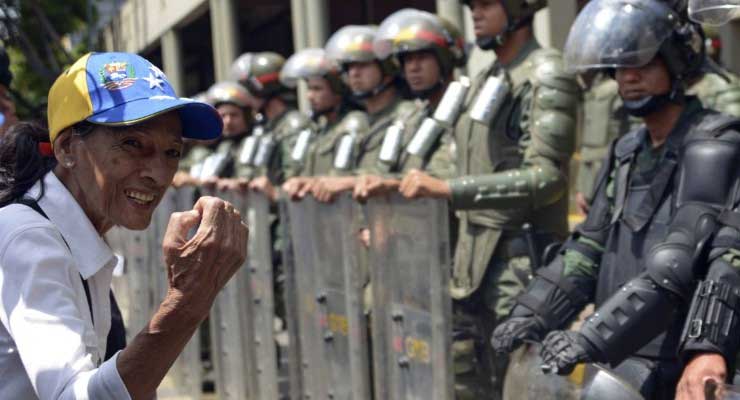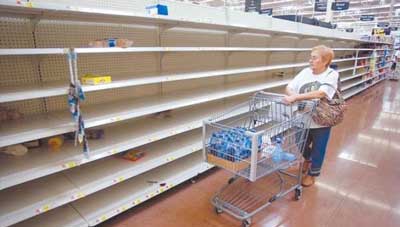
Venezuelan President Nicolas Maduro has extended a state of emergency this past Friday, May 13th, as the country’s economic problems have continued into the spring months of 2016. The struggling economy has been having a hard time as its main export, oil has hit record low prices in the beginning of 2016.
“An idle plant is a plant the people will take” Mr. Maduro said referring to the possible use of government authority to nationalize ineffective factories or oil plants. Oil prices hit record lows in the first quarter of this year when a price for the barrel of oil went down to $26.21. Revenue from oil is accounts for 95% of Venezuela’s source of income for the economy.
“We will take all the actions necessary to activate production, which is being paralyzed by the bourgeoisies”, Mr. Maduro continued in his statement. The bourgeoisie is the capitalist class who owns the means of production and wealth when it is defined by a socialist, like Mr. Maduro.
During the state of emergency, Mr. Maduro can use extraordinary measures to help protect the citizens of Venezuela from what it sees as perceived “threats” (the United States is constantly blamed for the current condition of Venezuela, which was started by previous President Hugo Chavez.).
Along with the power to use the government to crush threats, the state of emergency also allows Mr. Maduro to restrict freedom of movement, peaceful protest and the freedom of speech, according to Administrative Law Professor Jose Ingacio Hernandez.
 The state of emergency which began in January was extended another 60 days.
The state of emergency which began in January was extended another 60 days.
Economic struggles of the country has led to shortages in basic everyday needs such as food (supermarkets in Venezuela have had empty shelves) and medicine.
“We’re talking about a desperate president who is putting himself on the margin of legality and constitutionality” opposition member, Jesus Torrealba, who is a member of the Democratic Unity coalition party, said regarding the extension.
In addition to the economic troubles within the country, crime continues to plague Venezuela as it was ranked among the top 5 in most dangerous countries in the last available stats which was 2014.
“If this state of emergency is issued without the National Assembly, we would technically be talking about a self-coup” Mr. Torrealba continued in his statement.
The opposition leads in Venezuela’s National Assembly with 112 seats while allies of president Maduro party have 55 seats. The National Assembly has 167 seats total.
Venezuelan debt has risen steadily over recently years hitting almost half of its GDP at 49.80%, and has been on the verge of default.
In summary, it is disturbing that the so called “president” of a country would turn to undemocratic means of ruling when a crisis hits, where in reality, the leader should adopt free market principles and attempt to diversify the nation’s economy instead of having it dependent on just one commodity to export.
Links to sources:
- New York Times Link: https://www.nytimes.com/2016/05/15/world/americas/nicolas-maduro-tightens-hold-on-venezuela-as-us-fears-further-tumult.html
- The Economist: https://www.economist.com/blogs/graphicdetail/2016/02/graphics-political-and-economic-guide-venezuela
- Reuters Link: https://www.reuters.com/article/us-venezuela-politics-idUSKCN0Y501X
- Panama Post: https://panampost.com/orlando-avendano/2016/05/17/what-does-maduros-new-state-of-emergency-mean-for-venezuela/
- Trading Economics, Venezuela Economic Stats: https://www.tradingeconomics.com/venezuela/government-debt-to-gdp
Leave a Reply